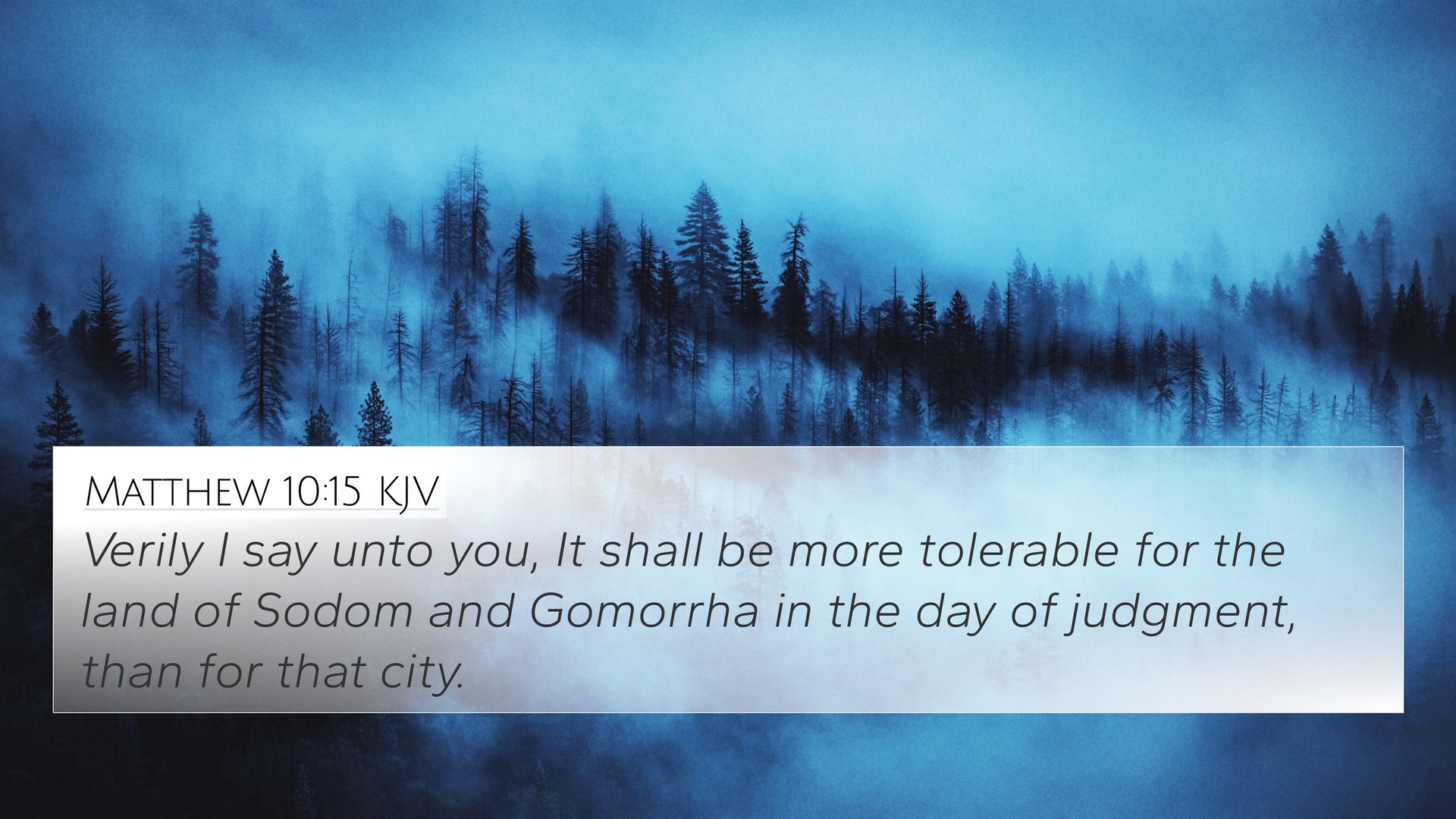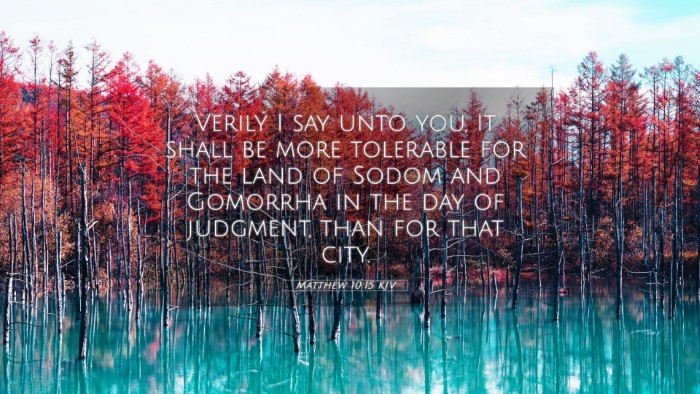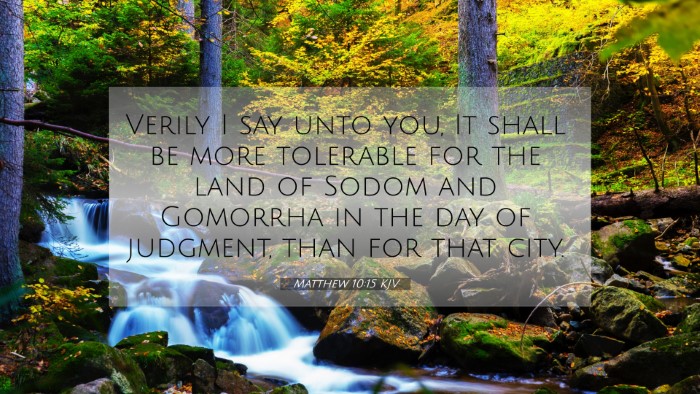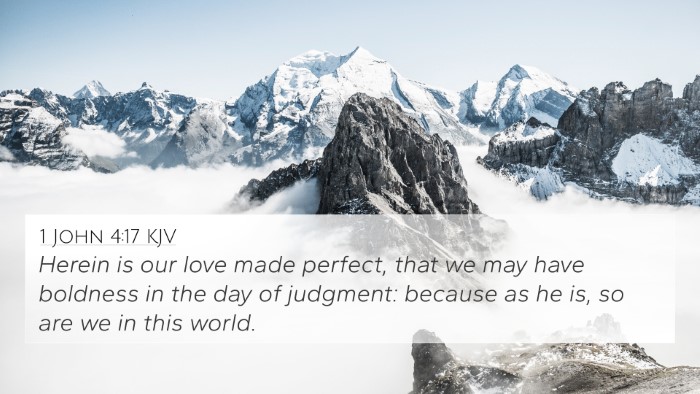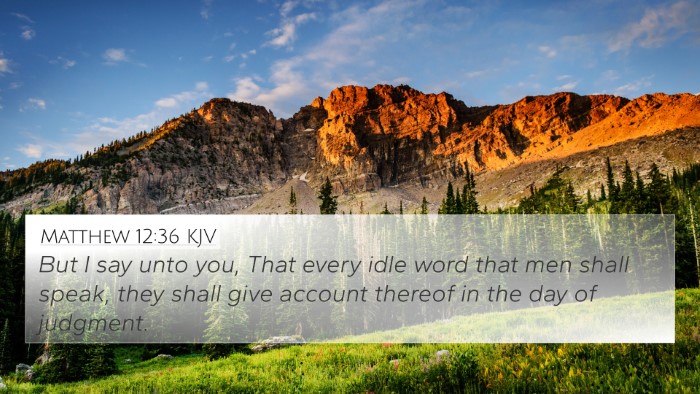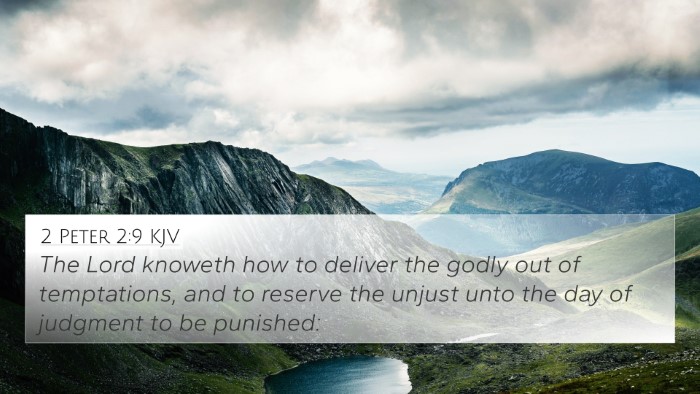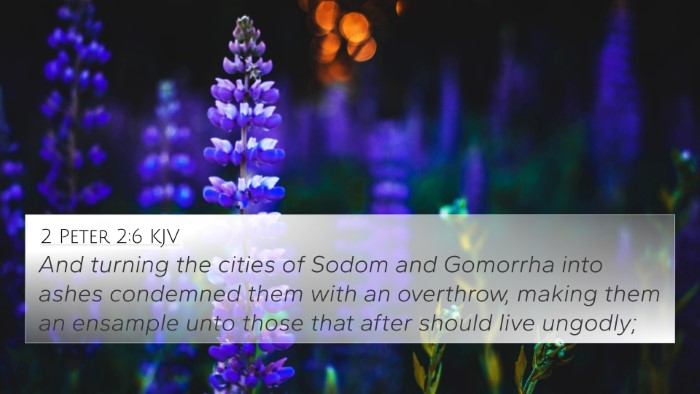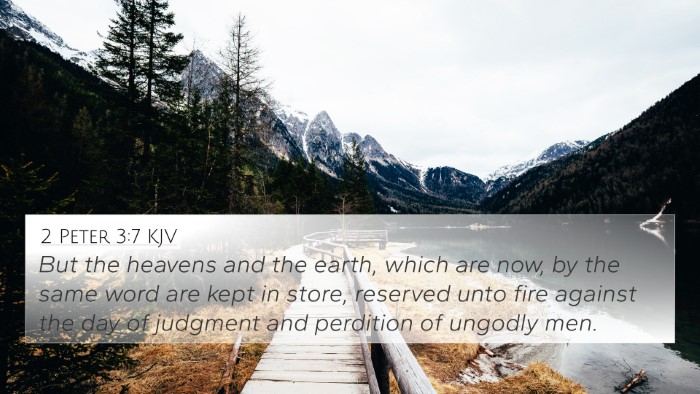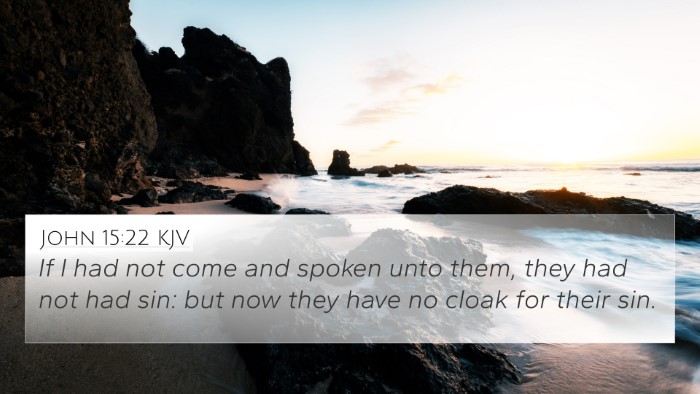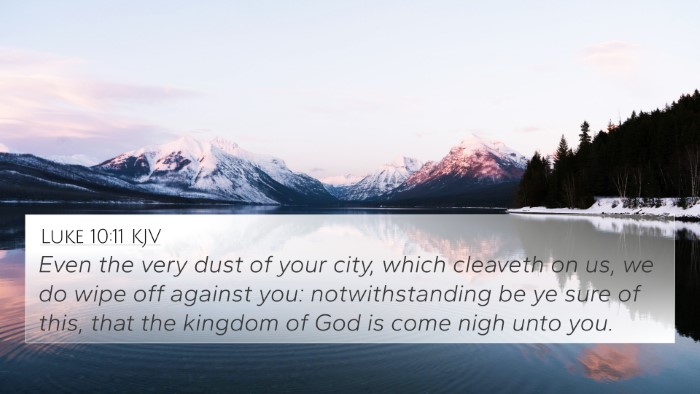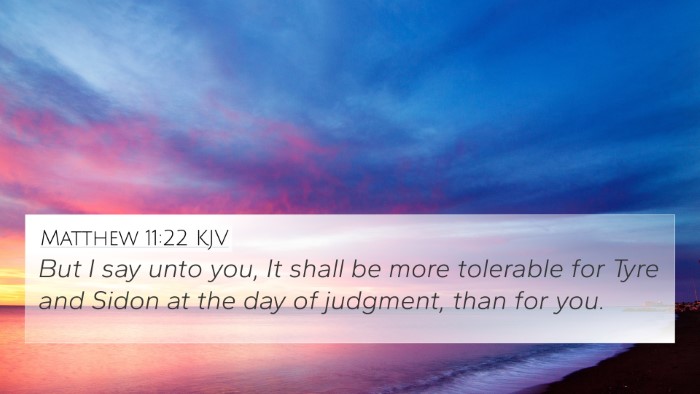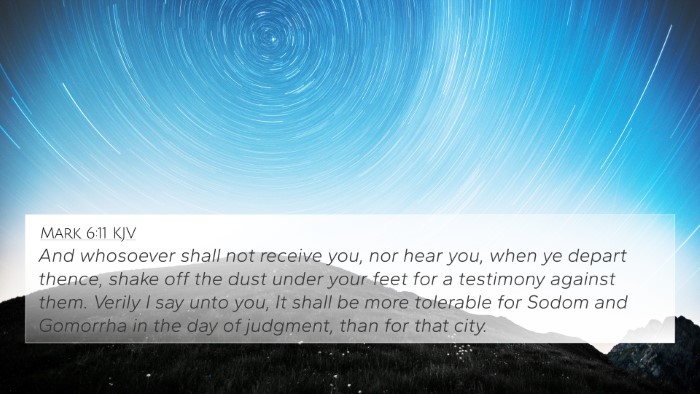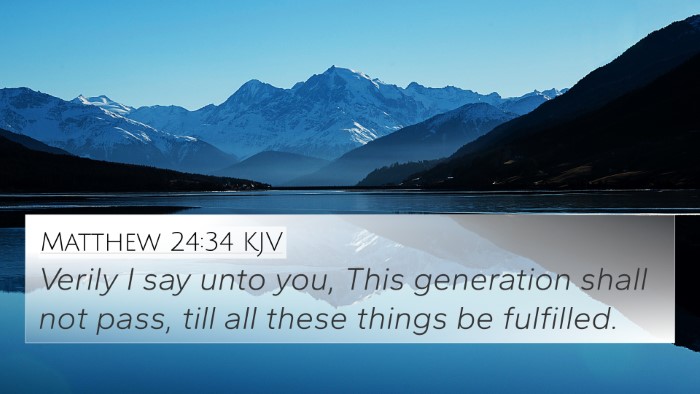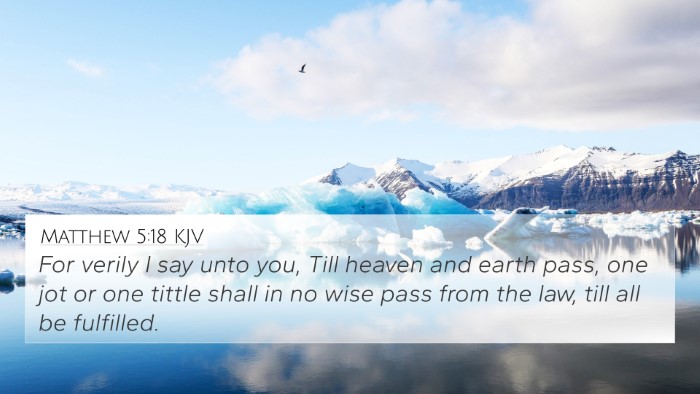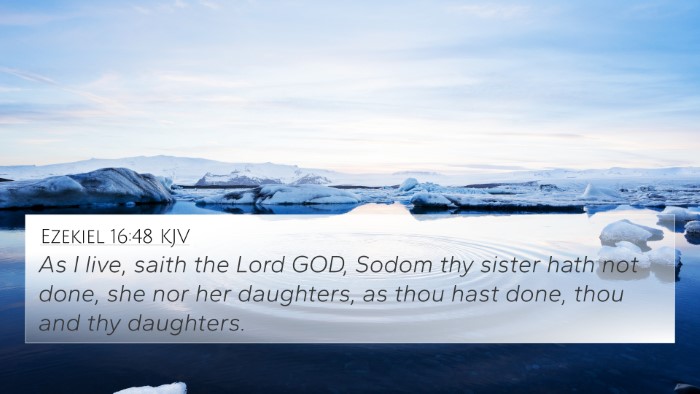Understanding Matthew 10:15
Matthew 10:15 states: "Verily I say unto you, It shall be more tolerable for the land of Sodom and Gomorrha in the day of judgment, than for that city."
Verse Meaning and Context
This verse emphasizes the severity of judgment that will come upon cities that reject the Gospel. Here, Jesus refers specifically to Sodom and Gomorrha, notorious for their wickedness and immorality. The use of these cities serves as a stark warning: those who reject the proclamation of the Kingdom of God are heading towards greater judgment than even those infamous cities.
Insights from Public Domain Commentaries
-
Matthew Henry:
Henry highlights the principle of responsibility in the Gospel. He notes that greater privileges come with greater responsibilities, and cities that experience the preaching of Christ and His disciples yet remain unrepentant will incur a heavier judgment. His commentary points to the justice of God, indicating that those who have greater light suffer greater loss.
-
Albert Barnes:
Barnes asserts that the reference to Sodom emphasizes the extreme wickedness of unrepentant cities. He points out that the punishment for the rejection of Jesus' message will be so profound that it will be more severe than that faced by Sodom. This commentary elaborates on the concept of justice and mercy intertwined within the biblical narrative, clearly indicating how God measures the responses to His revelation.
-
Adam Clarke:
Clarke focuses on the nature of divine retribution, arguing that societies which witness miracles and teachings from God yet ignore them are expected to face harsher consequences than those known for blatant sinning. Clarke’s examination encourages believers to realize their accountability, emphasizing the preeminence of the Gospel message and its transformative responsibilities.
Cross-References for Matthew 10:15
- Luke 10:12: Similar warnings about the consequences of rejecting the message of the Gospel.
- 2 Peter 2:6: God’s judgment on Sodom as an example of heavenly punishment for wickedness.
- Genesis 19:24-25: The account of the destruction of Sodom and Gomorrha for their immorality.
- Matthew 11:20-24: Jesus speaks about woe to unrepentant cities, drawing parallels to Sodom.
- Romans 2:5: The implications of storing up wrath for oneself against the day of judgment.
- Revelation 20:12: The great white throne judgment, where the dead are judged according to their deeds.
- Proverbs 29:1: The consequences of rejecting instruction, which can also tie into the Gospel message.
Thematic Bible Connections
The overarching theme in Matthew 10:15 and its commentary insights relates to the accountability and response to divine revelation. Not only does the verse signify the gravity of rejecting Christ's message, but it also contextualizes the prophetic messages delivered throughout scriptures. The connections between Old Testament narratives and New Testament teachings emphasize a consistent moral and divine framework throughout the Bible.
Tools for Bible Cross-Referencing
For deeper understanding and study, resources such as a Bible concordance, Bible cross-reference guide, and comprehensive Bible cross-reference materials can be invaluable. These tools assist in identifying connections between scripture, enhancing the study of Biblical texts, and revealing themes and parallels across different books of the Bible.
Applying Cross-Referencing in Study
Engaging in cross-referencing Bible study methods allows individuals to systematically explore how different verses interact, encouraging a holistic approach to scripture. Whether studying themes like justice, mercy, or divine judgment, understanding how verses relate to one another opens new theological insights and enriches personal faith journeys.
User Intent and Exploration
For those seeking to delve deeper into the links and themes within scripture, questions such as “What verses are related to Matthew 10:15?”, and “How do Sodom's judgment and New Testament teachings connect?” guide fruitful exploration. Recognizing these connections allows believers to grow in understanding God’s workings through the ages.
